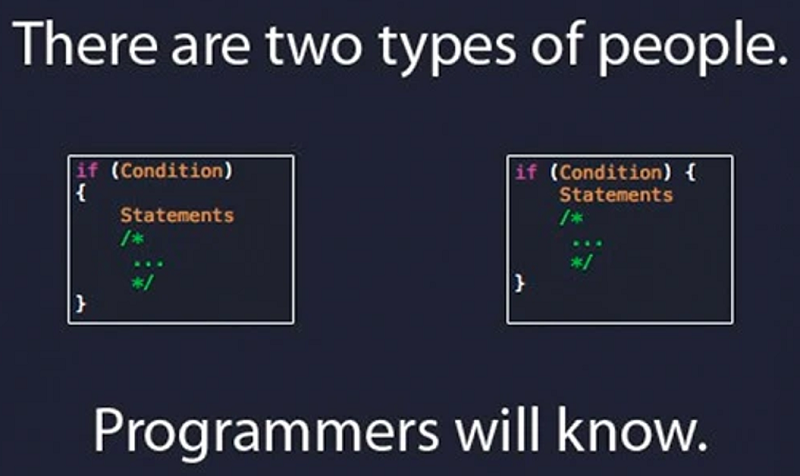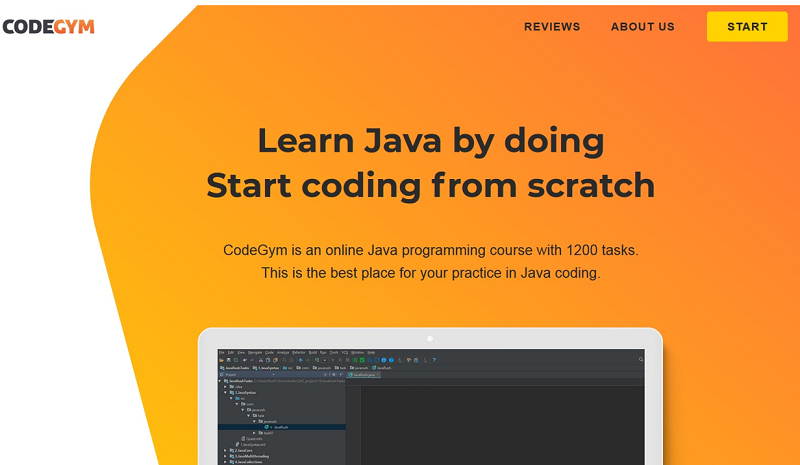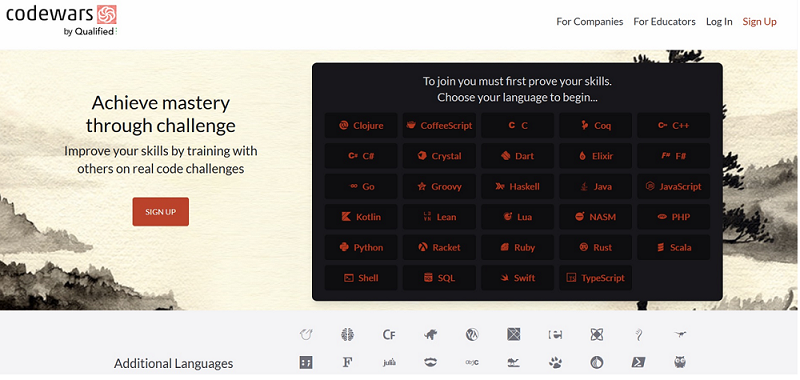Home »
Articles
How to Code for Beginners: All You Need to Know
Take your first step and start learning Java online today. This guide shows you where to start & how to find & utilize online materials for Java coding.
Submitted by IncludeHelp, on FEB 05, 2021
As a Java developer, there are certain pointers and tips that I came to know over the years which helped me to improve the quality of my code. Now, when I look back, I know for sure that my first projects would have been much better if someone had told me these tips when I was just beginning to learn Java online.
In this post, I'm going to share the most important pieces of advice that will improve the quality of your code, help you gain more experience, and even help you get through interview questions!
-
Improve Your Code by Reading Someone Else’s
- Classes to Read About
- Where to Find Open Source Java Projects
- Coding Conventions Matter
- Practice Practice Practice!
- Use Code Reviews
- Unit Testing Is Your Friend!
- Coding Tools to Improve Quality
- Conclusion
1) Improve Your Code by Reading Someone Else's
There is a secret move that will allow you to learn Java faster and code better right from the start. This secret is to read code written by other programmers. Since programmers usually work in teams, reading and understanding code written by others now will make it easier to work with your colleagues' code in the future.
There are multiple sources online where developers share their code. These sources are your golden opportunity to see how your fellow developers solve different problems. Besides, try to play with someone's code and make it better. It will improve your problem-solving skills as you develop new ideas & new ways of thinking. If the code works better, don't forget to share it with the community.
Classes to Read About
While reading other programmers' code will help you gain knowledge about different classes and what to use when there are a few classes that I recommend paying special attention to. Reading in-depth about these classes will help you utilize them better in your code.
These are a few of the classes to read about in-depth:
- HashMap
- ArrayList
- String
- AtomicInteger
HashMap is the basis of most job interview questions. So start preparing now.
The same thing can be said about ArrayList, this class often comes up in interview questions. ArrayList is a part of the collection framework and is present in java.util package. It provides us with dynamic arrays in Java.
The important thing to know about String is why it is final & immutable. String objects are one of the most used in Java programming.
I find AtomicInteger is one of the cooler classes as it supports atomic operations on Integer objects.
I could go on listing every class in Java, but these are the most crucial ones as they are the most used ones. The rest of the classes will come in time.
Where to Find Open Source Java Projects
Whether you need to find details and explanations on each class or written advanced code, you can check Pivotal; it has the most consistent content on Java in terms of up-to-date & in-demand code.
If you are wondering where you can find other developers' code, these are two of the most famous places to find code written in Java:
Both websites are platforms that allow developers to browse, read, and edit each other's projects. The brilliance of the idea is that you can get any code file, open it in your editor, improve it, and then re-share it with the community to get feedback from other fellow developers.
2) Coding Conventions Matter

Coding conventions are simply the main guidelines that each team or company uses in their projects. These guidelines cover everything from naming objects and coding techniques such as commenting and indentation to file organization and project architecture best practices.
Once you join a team, it is important to follow the team's coding conventions to maintain the consistency and readability of the project's code. As a result, extending & refactoring code, later on, will represent no problem. Overall, following coding conventions can reduce your project's failure risks.
3) Practice Practice Practice!
Just like with any other skill in life, your coding skills will get better with time and practice. Build your own projects in your free time. This can also help you build a good portfolio so when you start applying for a Java developer position, you have what to show.
There are plenty of ideas for projects to work on here.
If you want to keep practicing, but want a break from just simply writing code, here's a list of websites providing fun coding games and quizzes:
-
https://codegym.cc: In 40 levels divided into 4 quests, you can enjoy this Java gamified course. Save your galactic team & write the required code to repair your ship & return to Earth!

-
CodeChef: Turn the heat up with monthly contests and interesting prizes for the winners. Additionally, this website provides programmers with the platform to host their own competitions!

-
Codewars: Another interesting platform that allows you to practice coding by going through different challenges. Each challenge is called "Kata", as in the Karate practices. Katas are posted by users with the goal of teaching certain techniques.

4) Use Code Reviews
After a while of practicing Java coding, you will reach a point where it is necessary to have others look at your code to tell you how to improve its quality. Let me tell you, getting an expert to review your code is not going to be always easy. But, it is going to be worth it!
There are several communities online where you can post your code and ask expert programmers to review it:
- Github
- StackOverflow
- HackerNews
- Reddit
5) Unit Testing Is Your Friend!
Testing the smallest pieces of code independently has helped me more times than I can even remember. Discovering logic issues and algorithm failures before releasing the code is a lifesaver.
Since unit testing requires a correctly-structured code, you'll be improving your code's quality and performance as long as you are writing test units!
Like every other coding best practice, unit testing may seem like extra time. But, they will keep your code well-structured and make future debugging much easier. By writing test units, you also avoid rewriting huge blocks of code just to make the smallest changes to any functionality.
6) Coding Tools to Improve Quality
There is no such thing as memorizing neither code nor syntax. You start by learning the basics just like you'd learn the alphabet of a new language. From there, all you need to do is create the logic and translate it into the code. The code itself can have syntax mistakes, but those are easy to catch by the compiler.
However, logic and algorithm problems will not be detected by the compiler. This is when tools such as Checkstyle, PMD, FindBugs, and SonarQube become necessary. In addition to unit testing, these tools will help you to elevate the quality of your code. I suggest you giving them a shot!
Conclusion
Now that you know the main tips and recommendations on how to code, it is time to take action. Start by reading about the main four classes, then download someone else's project from Github or GitLab, edit their code, post it & get feedback and you're off!
Remember to use best practices to be equipped for working with professional and successful teams. However, don't let the aspiration for perfection stop you from moving forward. Remember that even the best of us has made the most ridiculous mistakes. Hone your skills every day and practice will get you to the "Perfect" level!
Advertisement
Advertisement